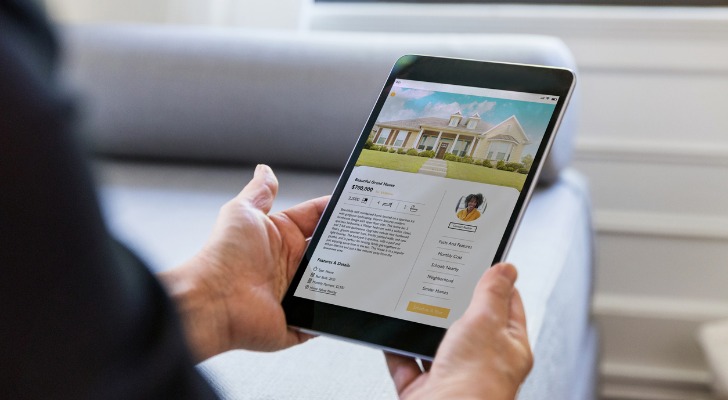Buying your first investment property can generate passive income and help you build long-term wealth. However, investing in real estate may bring increased responsibilities as a landlord and unexpected expenses, such as costly repairs, extended vacancies and legal fees. Understanding the perks and potential pitfalls of investing in real estate will help you decide whether venturing into this market is the right move for you. This step-by-step guide can help so you know how to buy your first investment property.
Working with a financial advisor can help you determine how to buy your first investment property to achieve your investment goals.
Choosing the Right Investment Property
When determining how to buy your first investment property, the first step is to figure out the type of home you want to purchase. Single-family homes typically require less maintenance and may have higher appreciation potential, while multi-family properties offer the advantage of multiple income streams. However, buying a condo can potentially yield lower returns due to common fees, but they often require less maintenance from the investor.
Also, you should seriously consider the location of the property. Research the local school system, crime rates and proximity to essential amenities. These factors can all greatly impact the property’s rental appeal and your return on investment.
Be sure you understand early on that local regulations and taxes also play a crucial role in selecting an investment property. Property taxes differ significantly from one region to another, and some cities have rent control laws that limit how much you can charge for rent. Being aware of these nuances will help you choose a property that provides the highest return on investment.
Conducting market research and analysis will help you identify emerging neighborhood trends and potential growth. Metrics like population growth, unemployment rates and infrastructure developments should inform your investment decision.
A financial advisor or real estate professional can offer personalized guidance for selecting the most suitable property based on market conditions and your individual goals.
Calculate Cash Flow and Return on Investment
Once you have identified a property to potentially purchase, do your due diligence by calculating the property’s monthly cash flow.
To do this, first estimate how much you can expect to collect in rent. Identify the rent for comparable properties, and subtract your monthly operating expenses from the rent, including your mortgage payment, taxes, insurance premiums and utilities.
It is also important to set aside money each month for eventual maintenance, repairs and vacancies. After all, it is better to have a cash reserve ready for when you inevitably have to replace the roof or install a new water heater. Having that money set aside will help you cope with sudden expenses when they arise.
Once you have added up all expenses and monthly cash reserves, subtract that number from the total income the property will generate. The result is your monthly cash flow.
If this number is negative, it is likely that the property will not make a good investment. Then again, just because a property has cash flow does not automatically make it a worthwhile investment.
For example, let’s say you are considering a single-family home that will require $80,000 for a down payment and closing costs. If the property generates $300 per month, that provides you with $3,600 in your first year of ownership. Sounds good, right?
Not so fast. Before signing off on the deal, calculate your return on investment. Simply divide the property’s total annual cash flow by your cash investment ($3,600/$80,000).
In this particular deal, the property will generate a 4.5% annual return, which may not be enough to entice you to buy the property. Either way, this is a valuable metric to pay attention to.
Financing Your Investment Property

Once you find a property and run the numbers to verify it is a worthwhile investment, you can move forward with financing.
It is important to understand how large of a down payment is required and what financing options are available. Traditional mortgages often have lower interest rates and favorable terms, while portfolio loans provide greater flexibility but may come with higher fees and rates.
Alternative financing options include hard money lenders, who offer short-term financing with potentially higher interest rates, or private lenders, who can provide personalized loan terms.
Another option may be house hacking, which is a strategy that involves you living in one part of a multi-unit property while simultaneously renting out the rest.
Making an Offer and Closing the Deal
Negotiating prices and terms is a crucial aspect of the home-buying process. After all, there is a saying in real estate: “You make your money when you buy.”
It is vital to settle on a purchase price that will allow the property to generate positive cash flow. Paying too much will likely eat into your future profits.
Contingencies are also important during negotiations as they provide buyers with a legal way to back out of a deal if certain conditions are not met. Home inspections can potentially reveal issues like structural defects, electrical problems or plumbing issues, which can all affect the negotiations.
During the closing process, it’s crucial to be prepared for possible problems. Set aside funds for potential repairs or even consider renegotiating the price based on the inspection and appraisal. Seek advice from professionals, such as real estate agents or attorneys, to help with negotiations and guide you through the closing process.
Managing Your Investment Property
After purchasing a property at a reasonable price, now you have to manage it like a business. One critical decision to make as a rental property investor is whether to hire a property manager or manage it yourself. Hiring a property manager can save time and effort, but it will cost you extra each month and lower your return.
Property managers handle all aspects of managing your investment from tenant placement to maintenance and repairs. However, if you prefer a hands-on approach, self-managing might be the right choice. Managing a property on your own requires familiarity with landlord laws and tenant rights, as well as legal obligations related to leases, eviction processes and fair housing laws. Keep all of this in mind as you create a property management plan.
Essential Tips for Buying Your First Investment Property
Before delving into real estate property investing, consider these best practices.
- Ask yourself if you really want to be a landlord. This role requires substantial time and effort, and understanding your willingness to take on these responsibilities is crucial.
- Master the art of property analysis. Tools like Rentometer or Zillow’s Rent Zestimate can help evaluate expected rent and calculate cap rates or return on investment. Meanwhile, the 1% rule can also help you assess a property’s potential ROI.
- Get rid of high-interest personal debt. The average credit card interest rate is much higher than the potential return on investment from a rental property. Paying off debt fast will also help you save for a down payment.
- Improve your credit score. Your credit score plays an essential role in securing better loan terms. To improve your credit score, pay your bills on time, pay down credit card balances and avoid opening new accounts.
- Consider long-distance real estate investing. If you cannot afford properties in your area, consider buying in a more affordable area, even if you do not live there. You will likely need to hire a property manager, but it will be easier to afford one when you spend less on the purchase. Mastering the art of financial analysis is equally important when managing a property remotely.
- Develop a local network of experts. Professional contacts, such as plumbers, electricians and maintenance workers, will make managing your property more manageable. A reliable team will help you handle maintenance and tenant relations effectively.
Mistakes to Avoid When Buying Your First Property
While investing in real estate can be rewarding, first-time buyers often make mistakes that eat into their profits or even turn their property into a financial burden. Knowing what to avoid can save you time, money and stress. These are some common pitfalls.
- Overestimating rental income. Don’t assume the highest possible rent will always be achievable. Research local rental rates for comparable properties, and factor in possible vacancies. Be conservative in your projections to avoid cash flow problems.
- Underestimating expenses. Many first-time investors overlook hidden costs like property management fees, repairs, maintenance, property taxes, insurance and HOA fees. Plan for these from the start, and set aside reserves for unexpected repairs.
- Falling in love with a property instead of the numbers. It’s easy to let emotions cloud your judgment, but real estate investing is a business. Focus on whether the property meets your financial goals, not whether you personally like the kitchen or its curb appeal.
- Ignoring local laws and regulations. Each city or state may have its own landlord-tenant laws, as well as zoning rules and rent control ordinances. Failing to understand these can lead to legal trouble or limit your ability to raise rents or evict tenants when necessary.
- Neglecting to perform due diligence. Skipping inspections, failing to research the neighborhood and not checking for liens and permits can turn what looks like a good deal into a costly mistake.
Bottom Line

Buying your first investment property involves understanding not only the benefits of investing in real estate but also the potential challenges and drawbacks. Choosing the right property, securing the best financing options, negotiating effectively and managing your property efficiently are all essential to ensuring you get the best return on your investment. By following these essential steps and tips, you will potentially be well on your way to profitable real estate investing.
Consult a financial advisor who can help you determine how to buy your first investment property to help build your wealth long-term.
Tips for Investing in Real Estate
- A financial advisor can help you build a real estate investing strategy. Finding a financial advisor doesn’t have to be hard. SmartAsset’s free tool matches you with up to three vetted financial advisors who serve your area, and you can interview your advisor matches at no cost to decide which one is right for you. If you’re ready to find an advisor who can help you achieve your financial goals, get started now.
- Running the numbers on a potential deal is vital and SmartAsset has tools to help you do just that. We have a calculator specifically designed to help you determine how much you can afford to spend on a property, as well as a mortgage calculator that will estimate how much your monthly payments will be
Photo credit: ©iStock.com/Vlad Dmytrenko, ©iStock.com/SDI Productions, ©iStock.com/Hispanolistic
